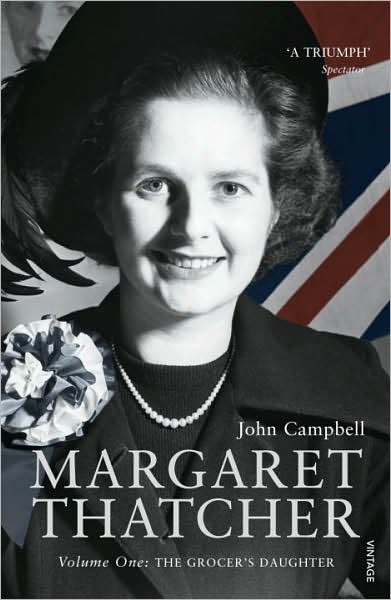
There’s always hope. That’s the message a young ideologue might take from John Campbell’s Margaret Thatcher, Volume One. If you have ability and convictions, and if you’re willing to play the game of consensus politics for about three decades, and if you’re lucky, and if you know how to use that luck, then you can actually make a difference.
I suspect most people who enter politics want to become the Thatcher of their party. Someone who plays ball with the political establishment while they must, but are able to keep their actual convictions intact, locked away until the day when they’re the one in charge. In most cases those convictions are eventually watered out, corrupted or thwarted. Thatcher used hers to reshape the political landscape.
Campbell doesn’t particularly like Thatcher’s convictions, which were gut-level rather than intellectual. What he does admire is her total dedication to her profession. Like other woman pioneers she had to work harder than men to be acknowledged, but the hard work paid off with an unmatched command of the tedious details of politics. It was obligatory during Thatcher’s early years in Parliament for other M.P.’s to refer condescendingly to her “charm”. Later .. not so much.
Volume One ends with Thatcher on the steps of Number 10 Downing Street, quoting Francis of Assisi. Campbell points out that the prayer she quoted was not quite as uncharacteristically humble as many took it to be:
Where there is error, may we bring truth.
Where there is doubt, may we bring faith.